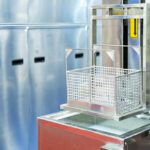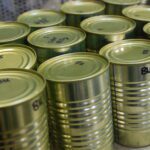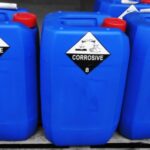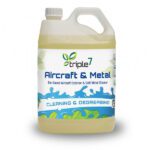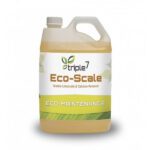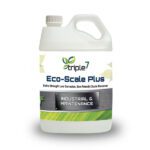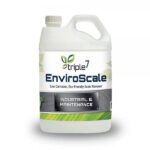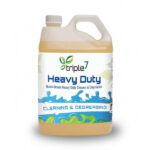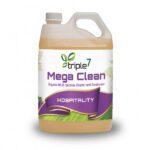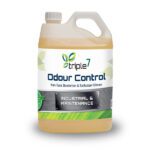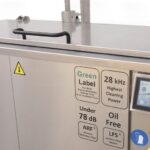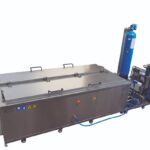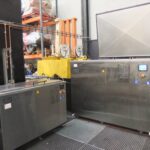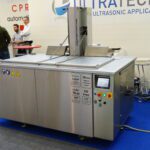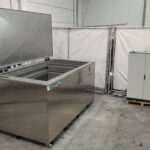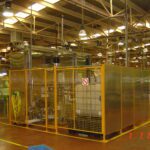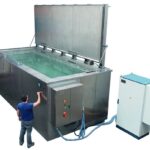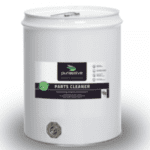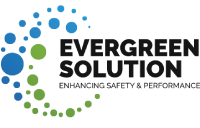Industrial cleaning involves the use of cleaning agents to remove dirt, grime, and contaminants from surfaces and equipment in a variety of industries, including manufacturing, automotive, and healthcare. There are several types of cleaning agents that are commonly used in industrial cleaning, including organic cleaners, chemical cleaners, and colloidal cleaners.
Table of Contents
Introduction
Organic cleaners are made from natural, biodegradable ingredients, such as plant oils and extracts, and are generally safer and more environmentally friendly than chemical cleaners. Examples of ingredients found in organic cleaners include vinegar, lemon juice, and baking soda. These ingredients are safe to use around children and pets, and are generally less toxic and harmful to the environment.
Chemical cleaners are made from synthetic chemicals and are often more effective at removing tough dirt and contaminants, but can be more toxic and harmful to the environment. Examples of ingredients found in chemical cleaners include chlorine, ammonia, and trisodium phosphate. These chemicals are often more effective at removing dirt and contaminants, but can be toxic and harmful to the environment.
Colloidal cleaners are a type of cleaning agent that consists of tiny particles suspended in a liquid or gel. Colloidal cleaners are effective at removing dirt and contaminants, and are generally less toxic and harmful to the environment than chemical cleaners. Examples of ingredients found in colloidal cleaners include surfactants, enzymes, and microbeads. Surfactants are molecules that can reduce the surface tension of a liquid, making it more effective at removing dirt and contaminants. Enzymes are proteins that can break down organic matter and remove stains. Microbeads are tiny beads that can mechanically scrub surfaces and remove dirt and contaminants.
Ingredients- What’s in the cleaners?
One of the main differences between organic cleaners, chemical cleaners, and colloidal cleaners is their ingredients. Organic cleaners are made from natural, biodegradable ingredients, while chemical cleaners are made from synthetic chemicals. Colloidal cleaners are made from a combination of surfactants, enzymes, and microbeads.
Which cleaner is the most efficient and powerful?

Another difference is their cleaning power. Organic cleaners are generally less powerful and effective at removing tough dirt and contaminants, as they are made from less potent ingredients. Chemical cleaners are generally more powerful and effective at removing tough dirt and contaminants, as they are made from stronger, more potent chemicals. Colloidal cleaners are generally more effective at removing dirt and contaminants than organic cleaners, but may be less powerful than chemical cleaners.
On the flipside the Organic cleaners and colloidal cleaners are safer on almost all surfaces and one cleaner can be used for multiple applications- The tweaking of concentration, dwell time, mechanical movement can render one cleaner that can be used on multiple surfaces. The total cost of ownership of colloidal and organic cleaner would definitely be lesser than a chemical cleaner.
How much do the cleaners cost?

The cost of organic cleaners is generally lower than chemical cleaners, as they are made from less expensive ingredients and do not require as much manufacturing and processing. Colloidal cleaners may be more expensive than organic cleaners, but are generally less expensive than chemical cleaners.
Which cleaner is the safest to use?
In terms of safety, organic cleaners are generally safer to use than chemical cleaners, as they are made from natural, biodegradable ingredients that are less toxic and harmful to the environment. Colloidal cleaners are generally safer to use than chemical cleaners, but may still contain some potentially harmful ingredients. Chemical cleaners can be more toxic and harmful, and may require the use of protective equipment, such as gloves and respirators, to prevent exposure.
In conclusion, organic cleaners, chemical cleaners, and colloidal cleaners are three types of cleaning agents that are commonly used in industrial cleaning. Each cleaner has its own pros and cons, as a consumer we have to decide which factors would be more beneficial for us in the long run.




